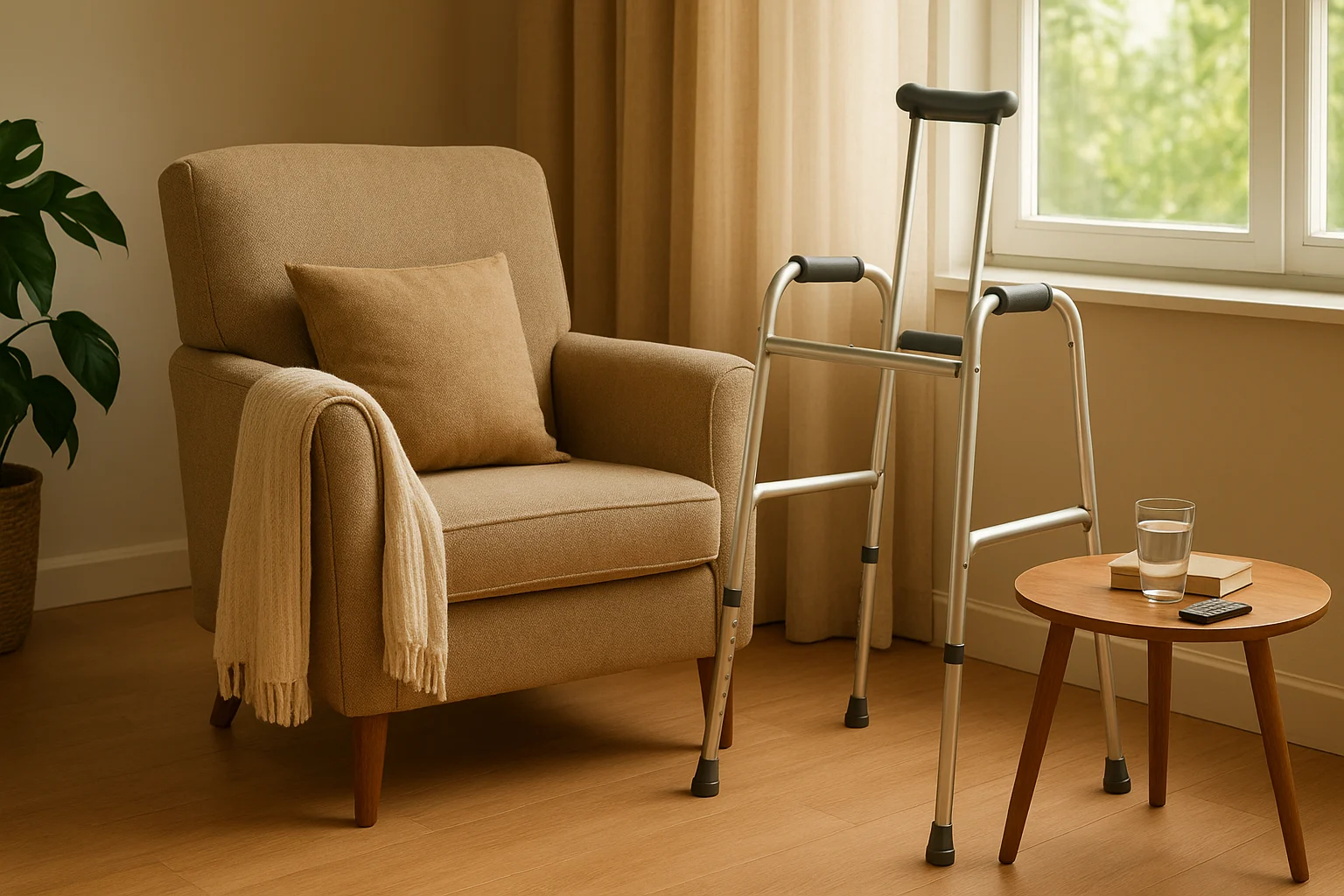

Joint replacement surgery, whether for the hip, knee, or shoulder, is a significant step toward reclaiming mobility and reducing pain. But if you live alone, preparing for the surgery and the weeks that follow can feel daunting. While it’s absolutely possible to recover well on your own, planning ahead makes the journey smoother, safer, and less stressful.
In this article, we’ll explore how to prepare your home, what kind of help to arrange, and practical strategies for managing daily life after surgery when you don’t have someone living with you.
Recovery from joint surgery usually involves a temporary reduction in mobility. Tasks like cooking, showering, reaching high cupboards, or even getting out of bed may be more challenging than usual. If you live alone, you won’t have a partner or family member nearby to step in automatically.
That doesn’t mean you’ll struggle—many people living independently recover well. But success depends on planning ahead. By putting supports in place before surgery, you’ll reduce your risk of falls, avoid unnecessary strain, and allow yourself to focus on healing.
Think of your home as your recovery zone. Small changes can make a big difference to your comfort and independence.
Remove clutter, loose rugs, and cords that could cause you to trip. After surgery, you may be using crutches, a walker, or moving more cautiously—so wide, clear walkways are essential.
Make sure your most-used chairs are sturdy, high enough to sit and rise from comfortably, and preferably have arms for support. Consider adding a firm cushion to low chairs.
Set up one central area (such as next to your favourite chair or bed) with easy access to:
This prevents the need to get up repeatedly, which can be tiring in the first week.
Consider grab bars, a shower chair, or a handheld shower head. Non-slip mats are essential. If you’ve had hip or knee surgery, a raised toilet seat can make a big difference.
Cook and freeze several meals ahead of time. Stock up on healthy, easy-to-prepare foods. Arrange frequently used items (like kettle, plates, and pantry staples) at waist height so you don’t need to bend or reach.
Even if you pride yourself on independence, having help in the first few weeks makes recovery safer and easier.
If you don’t have family nearby, short-term home help can be invaluable. Options include:
Your hospital or GP can often help connect you with these services.
Plan for grocery deliveries or meal services during recovery. Many supermarkets and local providers can leave food at your door, reducing the need for heavy lifting or long shopping trips.
Your surgeon and physiotherapist will give clear guidance on weight-bearing and exercises. Stick to these instructions, as they are designed to protect your new joint. Use walking aids until your physiotherapist confirms you can move safely without them.
Keep a simple log of your medication times. Alarms on your phone can help avoid missed doses. Don’t try to “push through” pain—well-managed pain allows you to move and exercise, which aids recovery.
Doing your prescribed exercises is essential. Set aside time each day to follow your physiotherapy plan. Some people find video calls with a physiotherapist motivating, especially if living alone.
Listen to your body. Even if you feel independent, don’t overdo household tasks in the early weeks. Recovery is about pacing yourself—balance activity with plenty of rest.
Living alone after surgery can feel lonely at times. It’s normal to have moments of frustration when you can’t do everything you’d like.
Stay connected with friends and family through phone calls, video chats, or short visits. Having company, even virtually, can lift your mood and remind you that you’re not doing this alone.
Some people also find it helpful to keep a recovery journal—tracking progress can be encouraging when you notice improvements over time.
How long before I can drive again?
This depends on the joint replaced, the type of surgery, and your individual recovery. For most people, it’s around 4–6 weeks, but always follow your surgeon’s advice.
Will I need help showering?
Not necessarily. With preparation (shower chair, grab rails, handheld shower), many people manage independently. But in the first few days, having someone nearby for safety can be reassuring.
What if I need help urgently?
Keep your phone with you at all times. Store important numbers—such as your surgeon’s rooms, GP, and a trusted friend—on speed dial.
Living alone does not mean facing surgery alone. With thoughtful preparation and the right supports in place, you can recover safely and regain your independence with confidence.